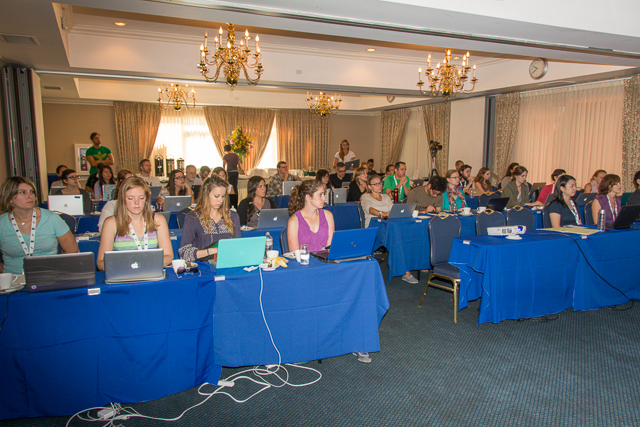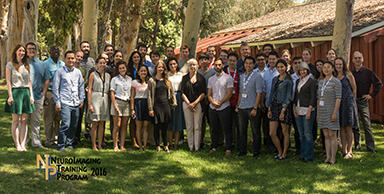| Faculty | Contact |
FAQ | Home | Summer Program |
neuroscience, magnetic resonance, functional mri, fMRI, neurosurgery, brain mapping, cognitive neuroscience, eeg, positron emission tomography, ucla, neuroimaging, pulse sequences, alzheimer, parkinson, perception, neurophysiology, magnetic resonance imaging, functional magnetic resonance imaging, cognition, psychology, epilepsy, PET, optical intrinsic signal, OIS, QEEG, magnetoencephalography, MEG, spectroscopy, nih, nimh, spm, fsl, afni, macine learning, physics. electroencephalography, electrophysiology, imaging, rf coil, diffusion, tractography, connectome, big data
The 2016 UCLA Advanced Neuroimaging Summer program
 |
Each year we are pleased to be able to offer a two week intensive summer program on advanced topics in neuroimaging. The purpose of this course is to provide a solid foundation in state-of-the-art magnetic resonance neuroimaging methods. The course covers all aspects of MRI-based neuroimaging data acquisition, experimental design, and data analysis. In addition, students will interact closely with these lecturers in hands-on laboratory exercises and data analysis projects. Responding to comments in prior years, we have increased the number of labs and peppered them throughout the day. Our program is targeted to investigators with significant experience in neuroimaging who are eager to gain more tools and knowledge to apply to their work. This year we once again will have an extraordinary faculty of internationally known experts. |
||||||||||||||||||||||||||||||||||||||||||||||||||||||||||||||||||||||||||||||||||||||||||||||||||||||||||||||||||||||||||||||||||||||||||||||||||||||||||||||||||||||
The (Video) for any lecture links to a recorded video. You can watch recorded the summer programs for prior years at our Archive Link web site. Thanks to the generosity of the United States National Institutes of Health we are able to offer the course without tuition and are able to cover the costs of lodging for students form outside of the LA area. The program is open to applicants worldwide (though we are unable cover costs of travel). We are able to admit about 35 students each year. The course will feature hands-on laboratory sections in neuroanatomy and image analysis, demonstrations of EEG-fMRI and an opportunity to design experiments and collect data at the UCLA Center for Cognitive Neuroscience imaging laboratory. The lectures are available live at http://ctrl.ucla.edu/video/nitp/. The course software (except MATLAB) can be downloaded from http://brainmapping.org/NITP/2016Data/VMInstructions.html |
|||||||||||||||||||||||||||||||||||||||||||||||||||||||||||||||||||||||||||||||||||||||||||||||||||||||||||||||||||||||||||||||||||||||||||||||||||||||||||||||||||||||
Final Course EvaluationWe would be very grateful if you fill in this Final Evaluation Form after completing the course,
|
|||||||||||||||||||||||||||||||||||||||||||||||||||||||||||||||||||||||||||||||||||||||||||||||||||||||||||||||||||||||||||||||||||||||||||||||||||||||||||||||||||||||
A few questions that came up during the course:
|
 |
The UCLA Neuroimaging Training Program is funded by generous awards from the National Institutes of Health, grant numbers R90 DA022768 and T90 DA023422

